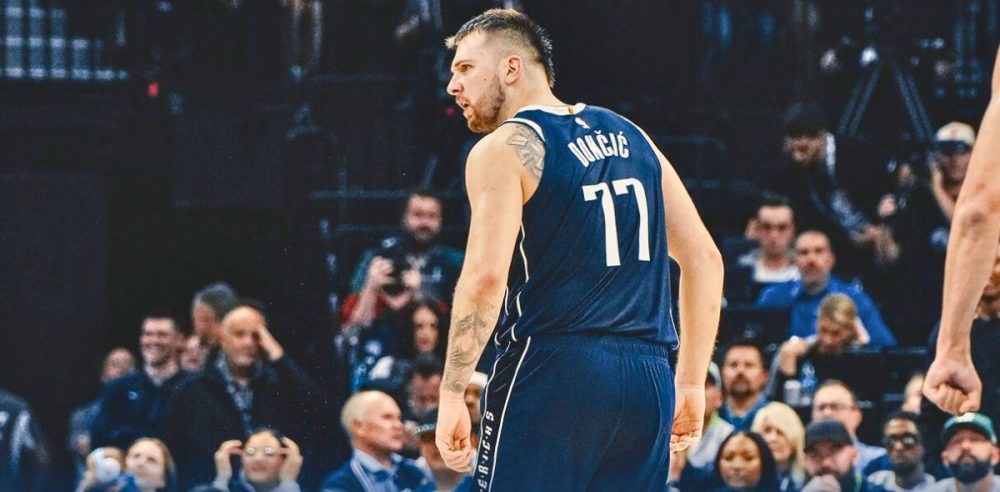Dallas Mavericks fans have spent the last few days waiting for a clear explanation as to why the organization traded 25-year-old superstar guard Luka Dončić to the Los Angeles Lakers and received little value in return.
That anticlimactic explanation came on Sunday when Mavericks General Manager Nico Harrison claimed in a press conference that “culture” was the reasoning behind the trade.
Current scene outside AAC.
Literally a town in mourning for Luka Doncic. pic.twitter.com/0DWx7Vb3wH
— Michelle Montaine (@michmontaine) February 2, 2025
Harrison answered very few questions regarding the decision before leaving the press conference. However, he noted that he and Mavericks Head Coach Jason Kidd “had a vision” about the culture needed to win a championship.
“The players that we’re bringing in, we believe, exemplify that. We think defense wins championships, and we’re bringing in one of the best two-way players in the league,” said Harrison, per ESPN.
Despite Harrison’s claim that he has the same vision for the roster as Kidd, both admitted that the head coach had little involvement in the process and decision to trade Dončić to Los Angeles.
Harrison explained in the press conference that “J-Kidd didn’t know about” the trade until the closing moments of the agreement, saying that he “felt good about it” and did not feel the need to talk to him about the decision, according to Sports Illustrated.
Kidd later confirmed these statements and said that he learned about the trade “at the 11th hour, right before it was announced” and had no input on the decision, as Air Meirov of The 33rd Team reported.
These trade practices have resulted in multiple NBA executives expressing their surprise about the trade, as rumors and leaked information have become common throughout the league in these moments.
One executive from the Western Conference said he was “stunned like everyone else” when the news was released, noting that there must be more to the story than what has been released, per The Athletic.
Another Eastern Conference executive explained the decision to trade Dončić by hypothesizing that the Mavericks know something other teams do not.
“Luka has the ability to take a franchise to the highest level and has shown that. He is a winner, but it seems that Dallas knows something that others might not know and made a decision that they feel is best for now and their future,” wrote the executive, as reported by The Athletic.
As previously reported by The Dallas Express, the Mavericks have already voiced concerns about Dončić’s “constant conditioning issues” and ongoing injuries.
However, these concerns do not resolve many other important questions surrounding this trade.
Why did Dallas talk to so few teams about a potential trade? Why did the Mavericks not allow other teams to present offers? How much could Dallas have received if their intention to trade Dončić was made public?
One NBA executive told Evan Sidery of Forbes that he would have traded “everything” if Dončić were available.
Instead, Harrison admitted that the Lakers were the only team he contacted regarding a trade for one of the best players in the league.
Dallas received two major pieces from the trade: Anthony Davis and a 2029 first-round draft pick, but the Mavericks did not acquire multiple valuable assets.
Los Angeles retained an additional 2031 first-round draft selection, guard Austin Reaves, and sharpshooting rookie forward Dalton Knecht, meaning those assets can later be used in another trade to improve the team further.
While it is unlikely Dallas would have been able to acquire all three of these assets, being unable to receive more for a top-five player in the league constitutes a failure of a trade.
For context, multiple high-level players, albeit slightly less talented than Dončić, commanded much larger packages from teams during recent offseasons.
The Portland Blazer traded star guard Damian Lillard, who was 33 years old at the time, in exchange for a first-round pick, two second-round picks, Jrue Holiday, and 25-year-old Deandre Ayton.
Portland later swapped Holiday for two more first-round draft selections and two additional players expected to be traded in the coming days for more picks.
Similarly, the New York Knicks acquired forward Mikal Bridges from the Brooklyn Nets in exchange for four unprotected first-round picks, two contingent first-round picks, a second-round pick, and multiple players who could command another pick in the future.
While Lillard and Bridges are All-Star-caliber players, many would have expected Dončić to command a much larger trade package than either.
Now, the only way to justify the trade is to win a championship within the next few seasons, as Dallas has little control over its draft capital in the future and could struggle to compete in the long term.


